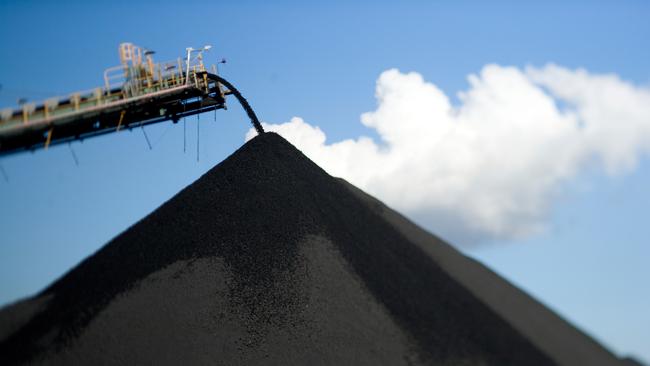Fair Work Commission rejects BHP’s Covid jab mandate
Workplace tribunal finds mining giant did not reasonably consult with employees over compulsory Covid jab policy.

BHP’s bid to make Covid vaccinations mandatory for workers at a Hunter Valley coalmine was not lawful or reasonable, according to a landmark ruling that shows employers must thoroughly consult workers before introducing jab mandates.
A Fair Work Commission full bench headed by president Iain Ross ruled BHP had breached its health and safety obligations by failing to reasonably consult with workers at the Mt Arthur mine in NSW about the policy.
However, the tribunal made clear the policy could be declared lawful and reasonable if BHP engaged in adequate consultations with employees in coming weeks.
Fewer than 35 of 724 workers covered by the Mt Arthur enterprise agreement remain unvaccinated and BHP will keep compulsory vaccination as a condition of entry at Mt Arthur Coal while the consultations occur.
National employer groups stressed the decision was not a repudiation of vaccine mandates by businesses but showed the importance of employers consulting with employees before implementing mandatory vaccination requirements for site access.
Ruling on a challenge by the Construction Forestry Maritime Mining and Energy Union to the mandatory jab policy, the commission said the “most telling factor” against a finding that the vaccine was reasonable was the failure by BHP to reasonably consult with the employees.
The commission said there were a range of considerations weighing in favour of the site access requirement being reasonable including that it was directed at ensuring the health and safety of mine workers; it was a reasonably proportionate response to the risk created by Covid, and it was implemented only after Mt Arthur spent a considerable amount of time encouraging vaccination and setting up a vaccination hub for workers.
“Had (BHP) consulted the employees in accordance with its consultation obligations – such that we could have been satisfied that the decision to introduce the site access requirement was the outcome of a meaningful consultation process – the above considerations would have provided a strong case in favour of a conclusion that the site access requirement was a reasonable direction,” it said.
The commission said adequate consultation did not require the workers to agree to the policy or give them a power of veto, but they should have been provided with a reasonable opportunity to persuade BHP in relation to the decision.
The full bench said Mt Arthur’s failure to comply with its consultation obligations was the “major consideration” for its finding against BHP and the consultation deficiencies could be addressed by Mt Arthur consulting the employees about whether the site access requirement should be imposed at the mine.
It said the NSW road map proposed the relaxation of various Covid restrictions by December 15 or when NSW reached 95 per cent double vaccination. “Provided Mt Arthur commences its consultation with the employees (about whether or not the site access requirement should be imposed at the mine) in a timely fashion, we expect that Mt Arthur would be in a position to make a decision about whether to impose the site access requirement at the mine prior to 15 December 2021,” it said.
“The consultation with the employees is directed at whether a site access requirement should be adopted and if so the terms of such a requirement. That is particularly so in circumstances where Mt Arthur has already engaged in extensive consultation with the employees in relation to the implementation of the site access requirement.”
In a statement on Friday night, a BHP spokesman said the company noted the decision “which acknowledges the risks presented by Covid-19 and has outlined that further consultation should occur”.
“The science is clear that vaccination saves lives,” the spokesman said. “BHP supports widespread vaccination as the path forward for the Australian economy.
“We are assessing the implications of the decision and will work with the commission, our people and union representatives to ensure our workplace remains as safe as possible for our people, their families and the community.”
CFMEU northern mining and NSW energy district president Peter Jordan said “BHP was arrogant in imposing its mandatory vaccination policy without genuine workforce consultation or the backing of a public health order”.
“The decision is a win for the rights of workers to be genuinely consulted about matters affecting them under state workplace health and safety laws,” he said.
Australian Chamber of Commerce and Industry chief executive Andrew McKellar said the decision demonstrated there was “no simple path for employers that seek to implement mandatory vaccinations in the workplace”.
“However, the judgment does not reject mandatory vaccinations outright,” he said.
“The commission appears to have provided guidance on the processes that need to be followed. What is clear today is that if businesses don’t take the necessary steps to get this right, their mandate will not stand.”


To join the conversation, please log in. Don't have an account? Register
Join the conversation, you are commenting as Logout